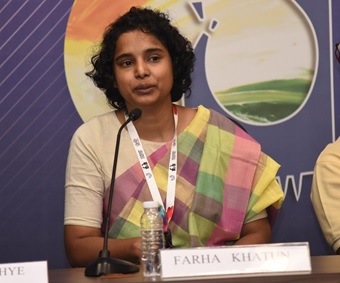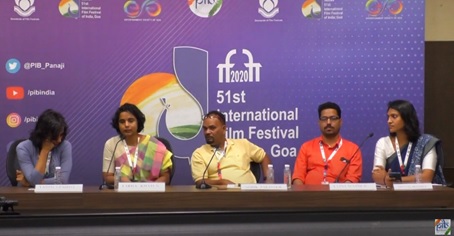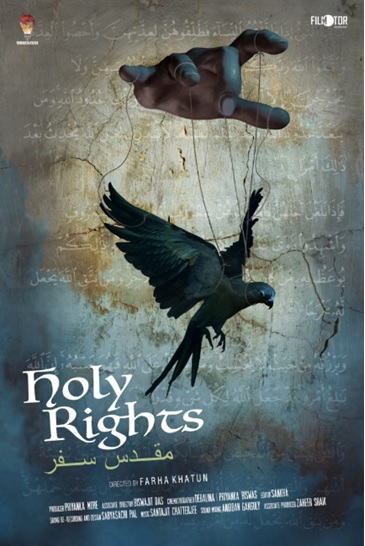Ministry of Information & Broadcasting
Holy Rights portrays Muslim women’s struggles to break free of patriarchy within religion: Director Farha Khatun
“The film on a woman Qazi gives a message that all of us can achieve something if we want to”
Panaji, 21 January 2021
“Holy Rights documents the movement against triple talaq, it portrays Muslim women’s struggles to break free of patronising voices within the community as well as resist external forces against appropriating their movement to suit their own political agenda. Though the film talks about the Muslim community in particular, I believe it's an all-pervasive one, on the problem of exploitation of powers of women. It also gives a message that all of us can achieve something if we want to.” This is what Director Farha Khatun had to say about her film Holy Rights, which has been screened under Indian Panorama Non Feature film category at IFFI-51. She was addressing a press conference on Day-6 (January 21, 2021) of the 51st International Film Festival of India, being held in Goa.

The film speaks about the exploitation women face in every walk of life, including in the sphere of religion, asserts Farah. Speaking about the seeds of the film, she mentioned about the influences she underwent during her childhood and the experiences that led to the shaping of the film. “I was quite aware of triple talaq since childhood. I have seen and heard many heart-wrenching stories about it, they really affected and influenced me. My quest to know more about the act and its interpretation in The Quran led me to make a film on Safia, a woman Qazi.”
“Holy Rights has been quite an experience for me, it has been a journey of five years”, she adds.

About ‘Holy Rights’

Safia, a deeply religious Muslim woman from Bhopal, is driven by her belief that Muslim women are denied equality and justice in the community because of the patriarchal mind-set of the interpreters of ‘Sharia’. She joins a programme that trains women as Qazis, (Muslim clerics who interpret and administer the personal law), which is traditionally a male domain.
The film documents the journey of struggle and tension of Muslim women, with a special focus on triple talaq. It tries to capture the desperation that drives women like Safia to risk everything to change an oppressive system.
The movie also highlights social issues, human rights, women, justice, family and religion.
***
DJM/HR/IFFI-36
(रिलीज़ आईडी: 1690870)
आगंतुक पटल : 792